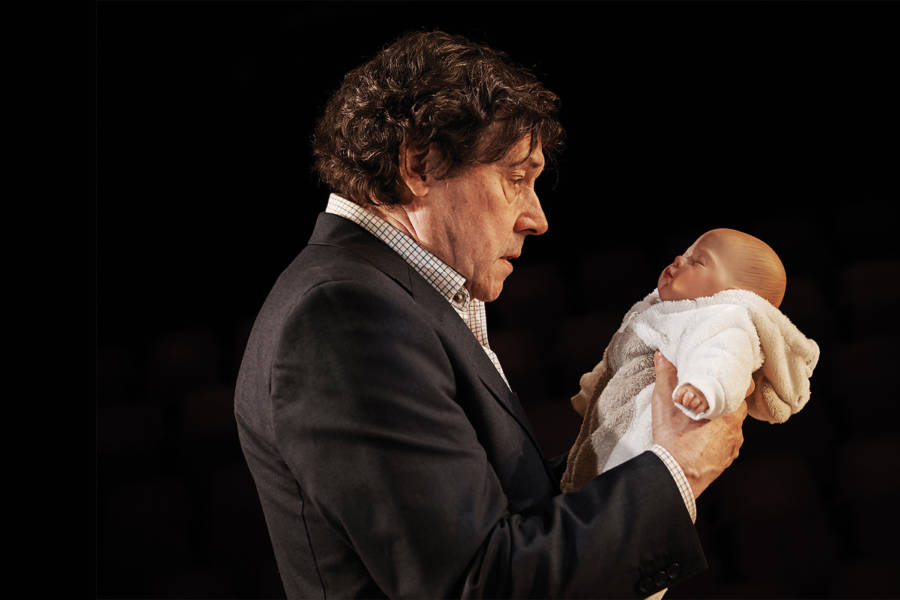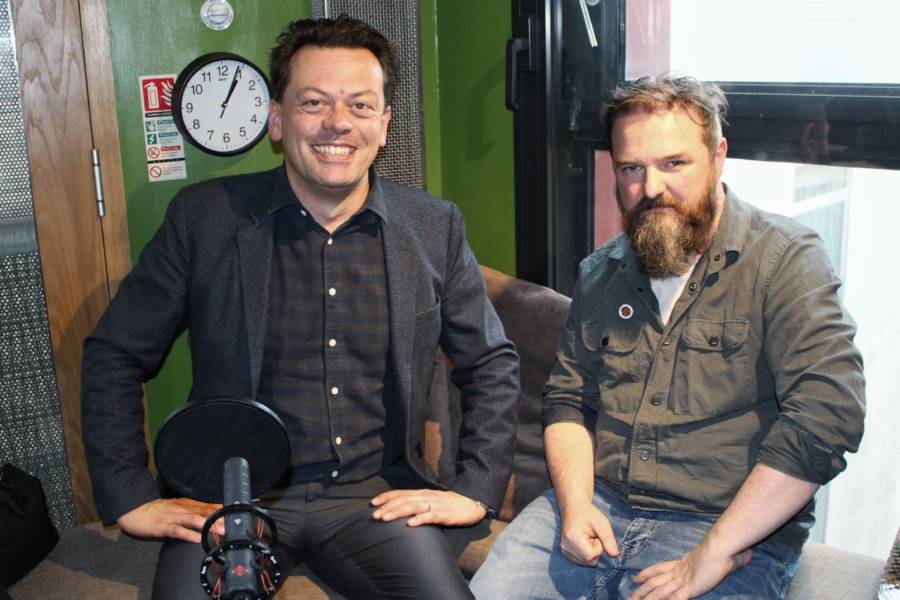In Conversation with David Ireland
David Ireland is a Northern Irish-born playwright and actor most known for his award-winning plays Cyprus Avenue and Ulster American. He won the Stewart Parker Award and the Meyer-Whitworth Award in 2012 and was shortlisted for the Evening Standard Award for Most Promising Playwright 2016. He has recently won the James Tait Black Prize Award for Cyprus Avenue.
We spoke to David about Cyprus Avenue, Belfast and his writing influences.
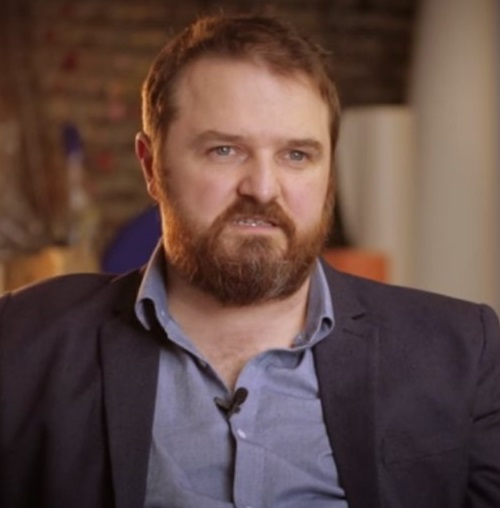
Why did you think Cyprus Avenue was a story that had to be told?
I don’t really think of any play I write as a story that “has to be told”. I know a lot of writers approach their work this way but it’s not for me. I think the world would be better off without my plays and I try my best to avoid writing them but something drives me to do it. Some pernicious discontent.
Cyprus Avenue was commissioned by the Abbey Theatre Dublin. I was aware I was being commissioned as an Irish writer – but I’ve always felt British. I’ve always identified as British. And yet, I’m undeniably influenced by so much of the Irish canon – especially O’Casey, Wilde, Beckett and Joyce. In some ways, I was trying to write a traditionally Irish play from an Ulster loyalist perspective. To try to encapsulate all the rage and frustration, fear and defiance of the Planter experience in Ireland- but with the epic sweep of O’Casey and the existentialist absurdism of Beckett. I didn’t quite get to that level of genius but I did ok with my limited talent.
Why did you set the play on Cyprus Avenue? And name it after the street?
I was living on Castlereagh Street when I started work on the play, a ten minute walk from Cyprus Avenue. I’ve always loved Cyprus Avenue and dreamed about living there, even as a boy. When I was writing the play, I thought I was writing about my father, my stepfather, my great uncle – all the angry, lost men in my family. And even though they all came from the working class area of Sandy Row but it didn’t make sense for me to set the play there. I didn’t know why. One of the first questions Vicky Featherstone asked me about the play was why I decided to make Eric middle-class. I didn’t even notice I had. It’s only recently I realised that I was really writing about myself. Eric has worked hard all his life to become middle class, to become urbane, but he can’t escape his violent heritage, his true nature. And that’s largely what drives the play. My fear of what I could become.

Support the Court
Our work with artists and writers continues during this uncertain time thanks to the generous support of our audiences.
Please donate today and be a part of our vital work and its future.
There’s a Belfast hyper-specificity in Cyprus Avenue, with conflict, jokes and language that may be lost on people who aren’t from Northern Ireland. Yet, the play’s humour and themes have struck a chord with people globally. Why do you think the play resonates and translates so well to other countries/cultures?
I love Belfast humour. I grew up listening to Clubsound and Jimmy Young. And John McBlain’s scandalously offensive Spitting Politics tapes in which Ian Paisley and Gerry Adams would fling scatological insults at each other over Christmas dinner. People have always said my plays were “too Belfast-specific” but I don’t even think about that. To be honest, I feel like I’m only ever writing for a Belfast audience. If audiences elsewhere enjoy it, that’s all well and good but deep down in my heart I really only care what the home crowd think. There’s a quote I read one time which I think came from Michel Tremblay – “the more parochial you are, the more universal you become”. I’ve always believed that. When I read a play from another country, I’m always delighted when there’s a reference I don’t get. A feeling of joy that I don’t know everything, that this writer knows about a place in the world that I don’t know and they’ve decided to take me there. But I’ve no idea why the play resonates so well elsewhere. Anna Houston directed a highly acclaimed production of the play in Australia which sadly I never saw. It comes back to war and madness, I guess. Sometimes it feels like the whole world’s becoming as tribal and volatile as Northern Ireland was during the Troubles.
What part of the play was the most fun to write? (Rosie, London)
Probably Slim’s first appearance. When he entered the scene, I couldn’t stop writing. Eric holds back so much but Slim can’t stop talking. I always wanted to play Slim myself – that was always the plan but my son was born when the play was in rehearsals so it would have been impossible. Thankfully the chameleon-like Chris Corrigan came along and played it better than I ever could have.
When are we going to see Tom Cruise play a Protestant vampire? (Tasha, Boston)
I’m working on the screenplay just now. It’s called Blood Orange.
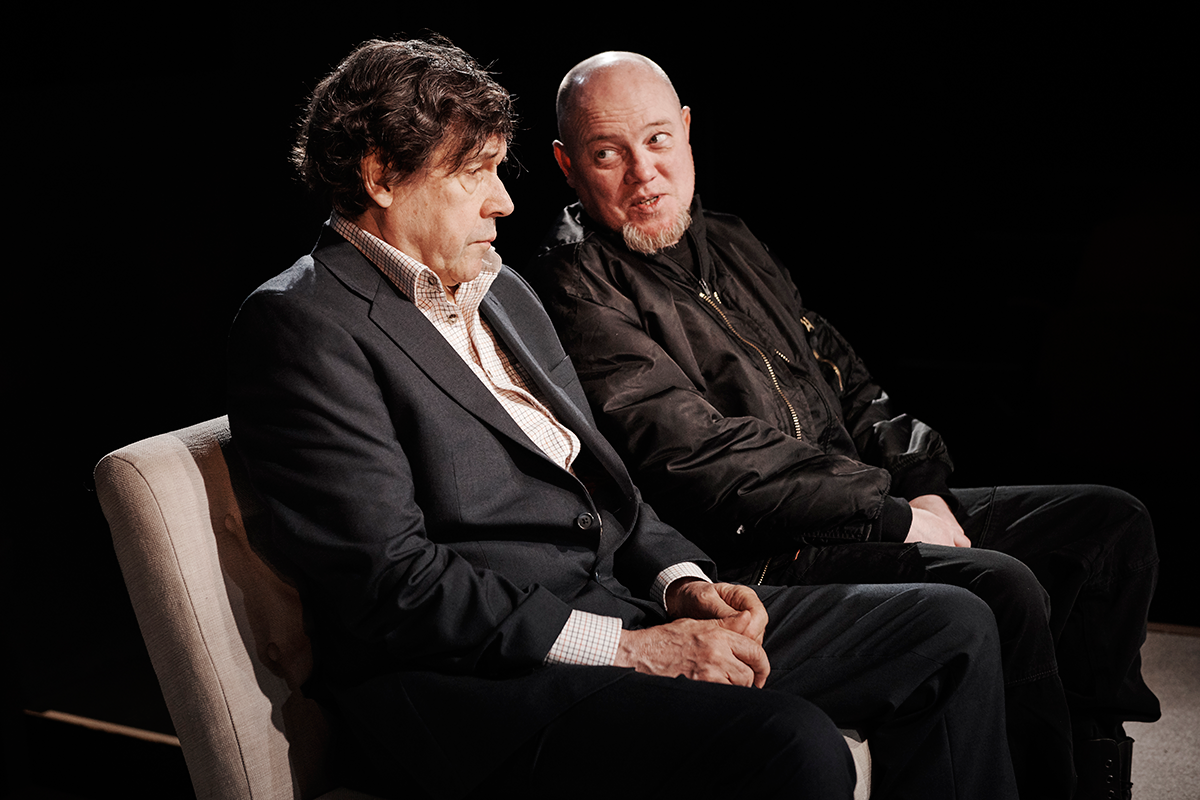
Do you know if Gerry Adams has seen it? (Laurence, Bristol / Ramona, London)
As far as I know, he hasn’t seen it. I heard Gary Lineker went to see it when it was first on in London. I’ve no idea what he thought of it. Liam Brady came to see it – my stepfather was a huge Arsenal fan and I wish he was still alive so I could tell him that. Edna O’Brien came to see it and apparently enjoyed it, which meant the world to me. And Tom Murphy came to the opening night in Dublin and he was very generous about the play. He was always a hero of mine so it was a privilege to meet him. But no Gerry.
In the play, Eric keep saying “No” and does not seem to “accept” anything other than Ulster and Unionism. Do you think acceptance is the most important for the reconciliation of the troubles? (Masayo, Luxembourg)
“No” is a really important word in the play and it’s a really important word in the history of Ulster unionism. The nay-saying unionist has become a comic cliché and I suppose I was partly trying to reclaim the right to say no. The positivity and affirmation of saying no.
At the moment, I’m not sure that any meaningful reconciliation is possible in Northern Ireland. I think we all thought that after the Good Friday Agreement reconciliation would occur naturally, that there’d be a natural transition over time to a more integrated society. That doesn’t seem to have happened. But then I don’t live there anymore, so maybe I’m missing something.
Cyprus Avenue was a brilliant show and eternal thanks to you for it. But are you really as pessimistic about loyalist/unionist thinking? Is it really stuck in a mindless rut from which it can never escape? (Jude, Belfast)
Thank you for your kind comments. I’ve touched on this to some extent in a previous question. As a loyalist, I share Eric’s pessimism for the future of the union. Unlike Eric I don’t think murdering a baby is the answer. But the Union has never felt more fragile to me. (Bear in mind, I’m an Ulster Protestant living on the south side of Glasgow, surrounded by Scottish theatre makers who regard Nicola Sturgeon as a modern day Bolivar. I walk a lonely path.)
In the published text, the play begins with a quote from Rudyard Kipling: “We know when all is said we perish if we yield.” That was true a hundred years ago and it seems to me to be even more true now. And I suppose the question of the play might be: How, as a Unionist, should one respond to the death of the Union? Certainly not with the extreme violence and nihilism that Eric chooses. Peter Crawley for all his infuriating flaws, hit on something with his review in The Irish Times. That the play seems to suggest survival lies in the ability to live within the contradiction of being both Irish and British. Maybe that’s the answer. Slim can do that, Julie can do that. Eric can’t. And I don’t know that I can either.
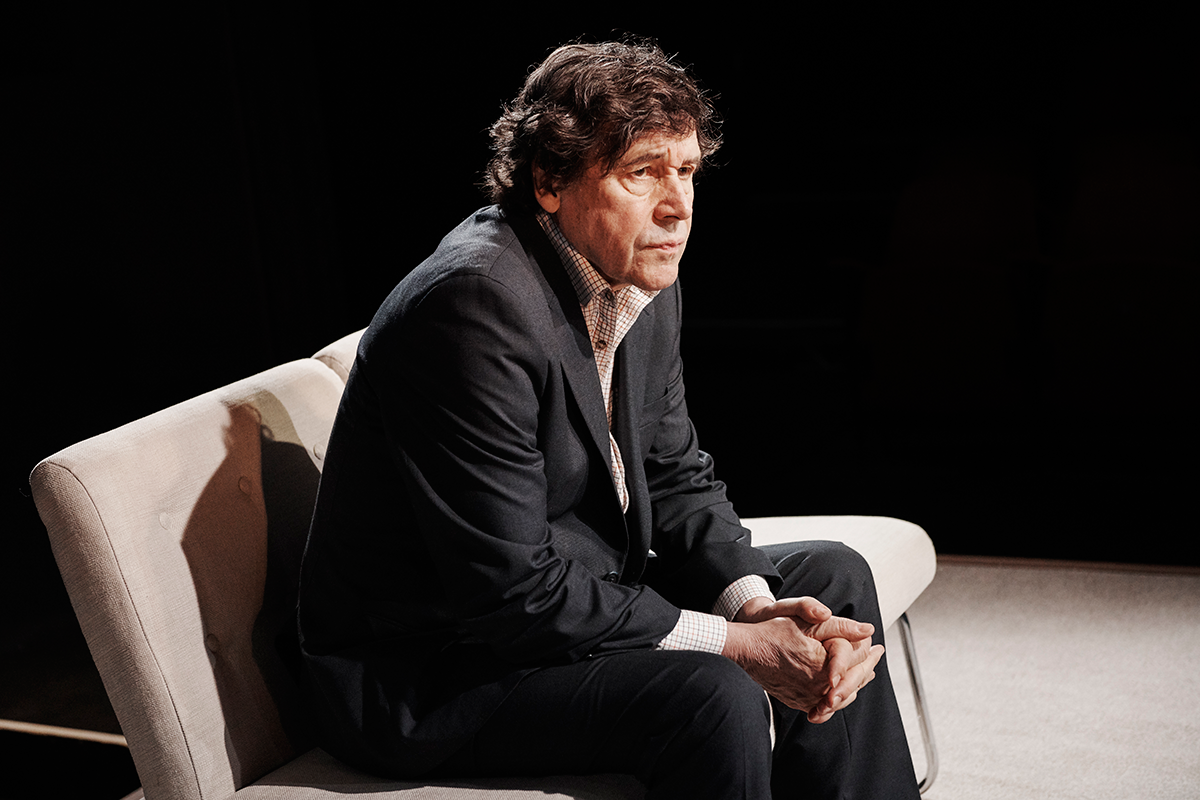
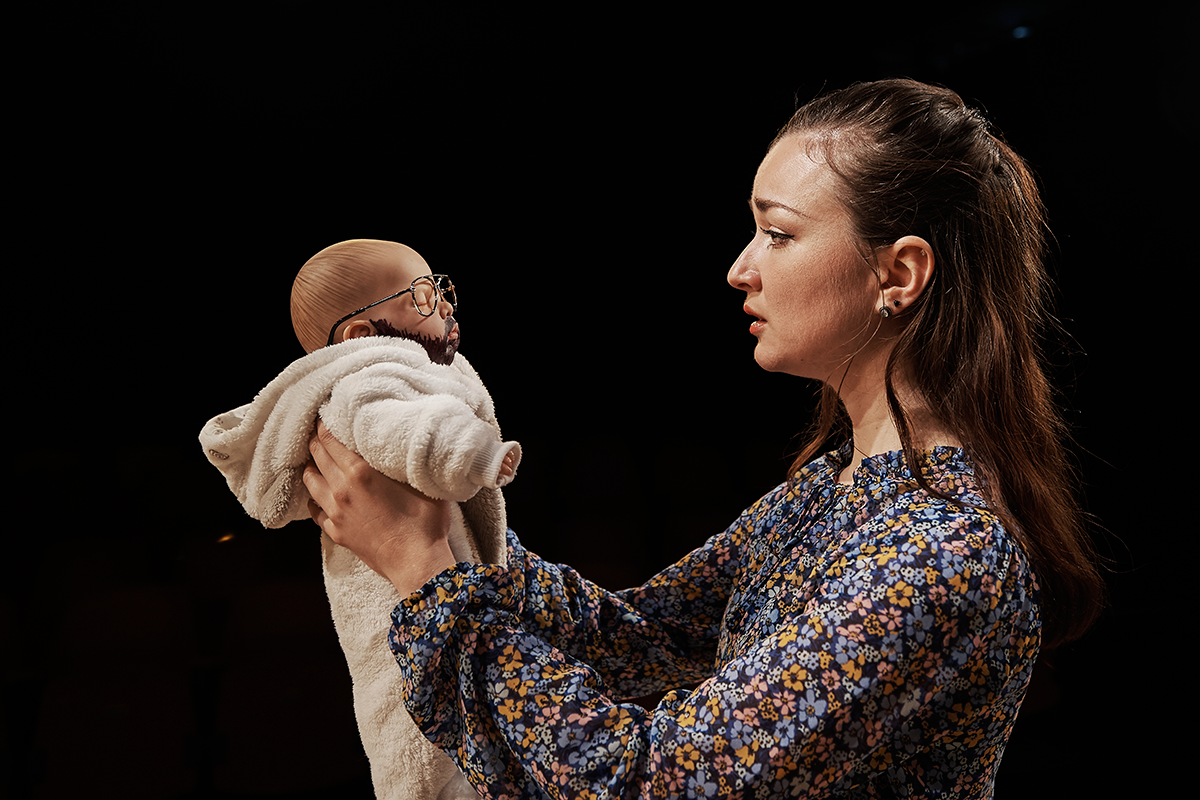
In the film, the audience’s reaction to the violence – stunned silence, some turning away in horror, occasional hysterical laughter, slight resentment – that seems to me what the reaction was like everywhere.
In terms of the play as a whole, the reaction varied from place to place. My impression was that in Dublin there were a lot of people who loved it but equally there were many who saw it as just another play about “the North”. And some people in Dublin seemed to feel attacked by it, perhaps understandably. To my surprise, the early audiences in London embraced it with great enthusiasm and saw it as a universal play about war and madness. In Belfast there was hysteria. It was like some fucked up Satanic Beatlemania. A lot of love for the play and a lot of hatred towards it too. Some people thought it was an anti-Unionist pro-Republican play which always makes me smile. You won’t find anyone more Unionist than me. But I’ve always said that as Unionists we have to be capable of self-examination and self-reflection. And in fairness most ordinary audience members understand this. It’s the cultural commentators and critics who always accuse me of “Unionist-bashing”. I don’t mind people thinking I’m a bad writer but it’s insulting to say I’m anti-Unionist. It’s patronising to me and to the Protestant Unionist Loyalist community. I’m a Unionist, my family and closest friends are Unionists, so why would I traduce them or myself? I write what I know and sometimes it isn’t pretty. My plays as a whole cover a wide range of Unionist perspectives and voices. Eric is very different from Ruth in Ulster American or Sandra in Everything Between Us.
But people only see what they want to see. If they come into it with a prejudice, that prejudice will be confirmed.
New York was the strangest reaction. I grew up watching films like Taxi Driver and Dog Day Afternoon and I was always led to believe that New Yorkers were tough. But I’ve never encountered such a fragile, super-sensitive audience. It had its champions in New York – especially the formidable Oskar Eustis who runs the Public Theater where the play was staged – but in general it felt like there was a lot of hostility towards the play. Audience members were apparently fighting in the street on opening night. There were reports of patrons shouting obscenities at the stage as they stormed out of the theatre. I’m told I should be proud of this but really I’m just embarrassed for human beings who behave that way. To react to fiction like this is a special kind of madness. It demonstrates a lack of basic empathy. I always loved the New York I grew up watching onscreen and I came back to Britain feeling sad and betrayed. (As a sidenote, when I talk about this during live Q&As, the cast contradict me and say the play was very well-received in New York and sold well. So maybe I’m the crazy one.)
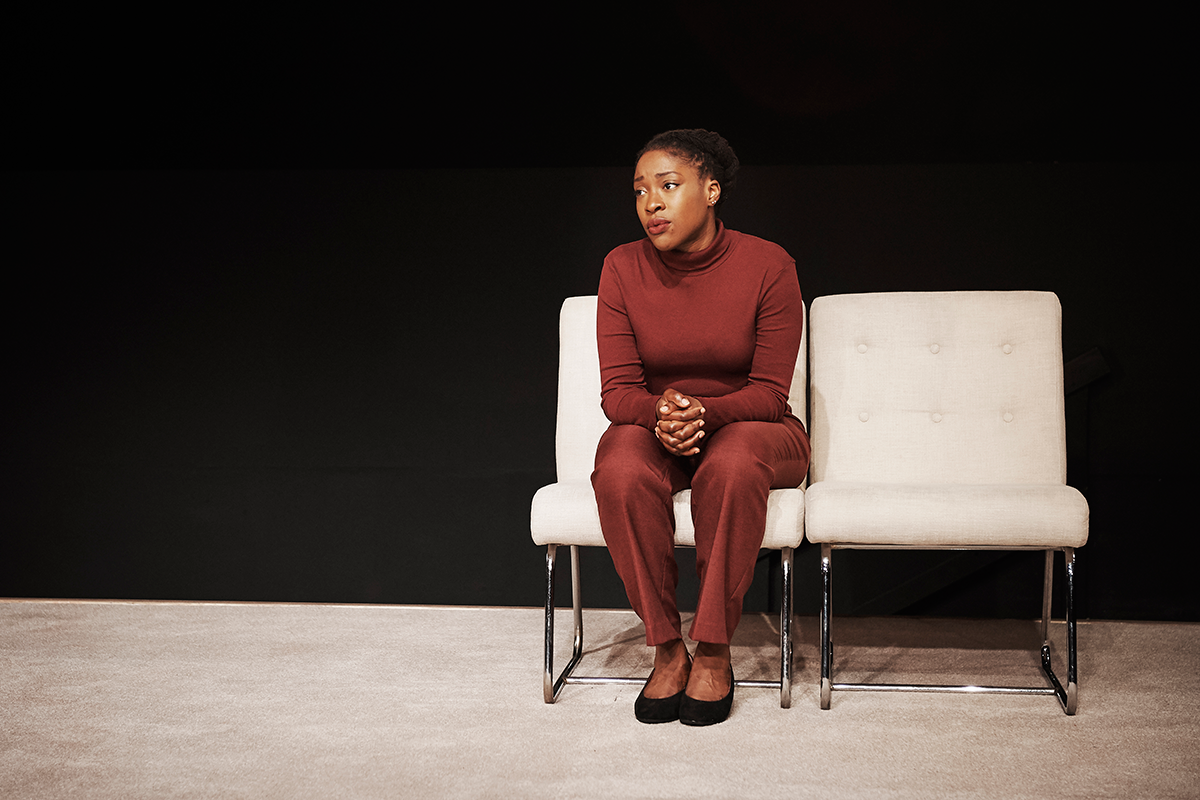
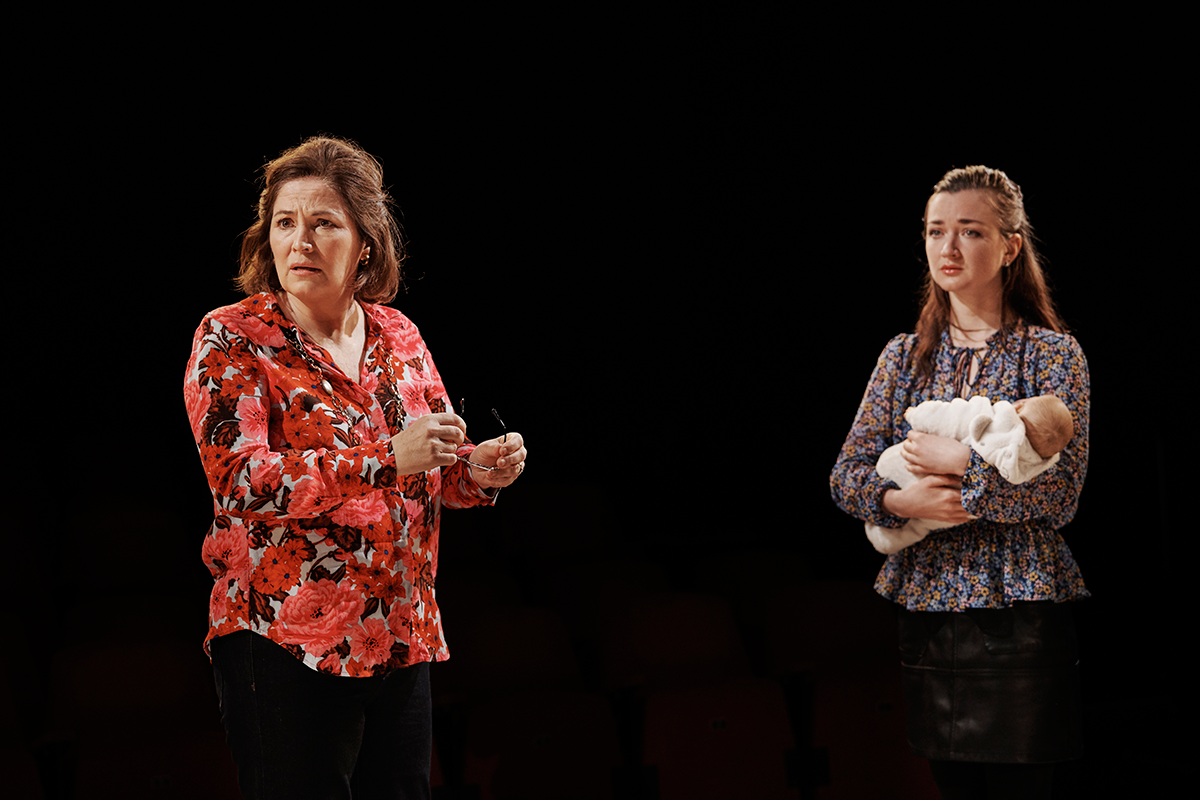
What’s the most successful exercise for you when writing a play? (Elan, Birmingham)
I don’t really do writing exercises though I probably should. I came to writing late after many years as an unemployed and unemployable actor. I never went to any writers groups or anything like that so I never learnt any of those skills. I start and then make it up as I go along with little idea of what’s going to happen next. Usually it’s a mess so then I have to go back and fix it all, while crying.
Who most influences you as a writer?
David Mamet. He’s the main influence. Still my favourite, still the best. Cyprus Avenue owes a lot to his horrific and insane Edmond. (Albee’s The Goat was a big influence on Cyprus Avenue too. As was Buchner’s Woyzeck.)
When I was a teenager I was obsessed with Howard Barker, Frank Zappa, Woody Allen and Ingmar Bergman and I can definitely see their influence on my work. When I started writing seriously as an adult I was inspired by Pinter, Tarantino, McDonagh, Norman Mailer, Philip Roth, Neil LaBute, Conor McPherson. And Neil Simon. I fucking love Neil Simon. I’d happily live in a world where all plays were written by Neil Simon.
Also, I discovered Eminem and Sophocles at the same point in my life and I think that might explain a lot.
What is the significance of the Royal Court Theatre for you?
To be honest, I didn’t know a lot about the Royal Court until Vicky (Featherstone) was appointed Artistic Director. As an actor I only ever worked in Belfast and Glasgow so I was completely ignorant of the whole theatre scene in London. I assumed I would never work in London as an actor so I tended to ignore it. The Royal Court, the Old Vic, the Young Vic, the Palladium – it could have all been the same theatre to me. I only realised how significant it was to have a play on at the Royal Court when I started telling other writer friends about it and they would go pale with jealousy.
When I saw the play eventually downstairs on its second run, it only really hit me then – the incredible history of the theatre and how humbling it is to be a part of that. The stage itself has some kind of magic about it.
What’s your hope for theatre in the future?
There’s so many exciting young writers coming up now. To name a few that I know and admire – Erica Murray, Meghan Tyler, Ali Hardiman, Isobel McArthur, Michael Patrick and Oisin Kearney. I hope we see them emerging strong and triumphant when this is all over. I want to see new plays from Charlene James because she’s brilliant. Same goes for Ella Hickson, Alastair McDowell, Mark O’Rowe, Laura Wade, Duncan Macmillan and so many others.
And I hope we choose freedom over safety.
To be kept updated with news and articles from the Royal Court join our mailing list
Cyprus Avenue images by Ros Kavanagh

